November 21 is:
National Adoption Day
World Television Day
164 BC – Judas Maccabaeus, son of Mattathias of the Hasmonean family, restored the Temple in Jerusalem. This event is commemorated each year by the festival of Hanukkah.
 Birthday of Jean Francois Marie Arouet (Voltaire), (November 21, 1694) French Enlightenment author, historian and philosopher. Author of “Candide”. Known for his wit and attacks on the established Church. He was a key figure in the European intellectual movement known as the Enlightenment.
Birthday of Jean Francois Marie Arouet (Voltaire), (November 21, 1694) French Enlightenment author, historian and philosopher. Author of “Candide”. Known for his wit and attacks on the established Church. He was a key figure in the European intellectual movement known as the Enlightenment.
 North Carolina became the twelfth state in 1789:
North Carolina became the twelfth state in 1789:
- Capital: Raleigh
- Nickname: Tar Heel State
- Bird: Cardinal
- Flower: Flowering dogwood
- Tree:Pine
- Motto: To be rather than to seem
The State of North Carolina has 42 official state emblems including the state insect (European honey bee), gemstone (emerald), beverage (milk), dog (Plott hound) , vegetable (sweet potato), fruit (Scuppernong grape), folk dance (clogging), and sport (Nascar).
See our page North Carolina for more interesting facts and trivia about North Carolina.
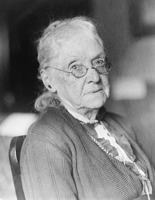 In 1922, Rebecca Latimer Felton of Georgia took the oath of office, becoming the first female United States Senator.
In 1922, Rebecca Latimer Felton of Georgia took the oath of office, becoming the first female United States Senator.
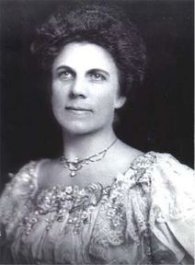 Former First Lady Florence Harding died of renal failure on November 21, 1924, at Marion, Ohio, U.S., wife of President Warren G. Harding.
Former First Lady Florence Harding died of renal failure on November 21, 1924, at Marion, Ohio, U.S., wife of President Warren G. Harding.
 1942 – Tweety Bird, aka Tweety Pie, debuted in “Tale of Two Kitties”
1942 – Tweety Bird, aka Tweety Pie, debuted in “Tale of Two Kitties”
On Nov. 21, 1995, the Presidents of three rival Balkan states (Yugoslavia, Bosnia-Herzegovina and Croatia) agreed to make peace in Bosnia, (the Dayton Agreement) ending nearly four years of terror and ethnic bloodletting that left a quarter of a million people dead in the worst war in Europe since World War II.

 1849 – A Russian court sentenced writer Fyodor Dostoevsky to death for anti-government activities linked to a radical intellectual group. At the last moment, a note from Tsar Nicholas I was delivered to the scene of the firing squad, commuting the sentence to ten years’ hard labor in Siberia. Dostoevsky’s seizures, which may have started in 1839, increased in frequency in Siberia, and he was diagnosed with epilepsy. On his release, he was forced to serve as a soldier, before being discharged on grounds of ill health. He survived until 1881. Dostoevsky was the author of Crime and Punishment, The Idiot, and The Brothers Karamazov.
1849 – A Russian court sentenced writer Fyodor Dostoevsky to death for anti-government activities linked to a radical intellectual group. At the last moment, a note from Tsar Nicholas I was delivered to the scene of the firing squad, commuting the sentence to ten years’ hard labor in Siberia. Dostoevsky’s seizures, which may have started in 1839, increased in frequency in Siberia, and he was diagnosed with epilepsy. On his release, he was forced to serve as a soldier, before being discharged on grounds of ill health. He survived until 1881. Dostoevsky was the author of Crime and Punishment, The Idiot, and The Brothers Karamazov.
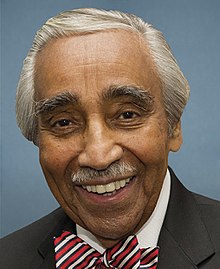 In 2010, U.S. Rep. Charles Rangel was convicted on 11 of 13 charges related to financial misconduct, prompting fellow lawmakers to censure the 80-year-old New York Democrat. Despite the ethics violations, Rangel was re-elected in 2012 and 2014.
In 2010, U.S. Rep. Charles Rangel was convicted on 11 of 13 charges related to financial misconduct, prompting fellow lawmakers to censure the 80-year-old New York Democrat. Despite the ethics violations, Rangel was re-elected in 2012 and 2014. Birthday of Abigail Smith Adams (November 11, 1744), wife of
Birthday of Abigail Smith Adams (November 11, 1744), wife of 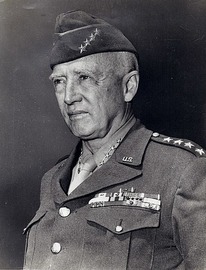 Birthday of George Patton, (Nov. 11, 1885), the famous World War II American military officer.
Birthday of George Patton, (Nov. 11, 1885), the famous World War II American military officer.
 Anniversary of the burial of the Unknown Soldier at the Tomb of the Unknowns in 1921 at Arlington National Cemetery in Virginia. The tomb is guarded by soldiers of the United States Army’s 3rd Infantry Regiment. The first 24-hour guard was posted on midnight, July 2, 1937. The Tomb of the Unknowns has been guarded continuously, 24 hours a day, 7 days a week, since that time. Inclement weather, terrorist attacks, etc, do not cause the watch to cease.
Anniversary of the burial of the Unknown Soldier at the Tomb of the Unknowns in 1921 at Arlington National Cemetery in Virginia. The tomb is guarded by soldiers of the United States Army’s 3rd Infantry Regiment. The first 24-hour guard was posted on midnight, July 2, 1937. The Tomb of the Unknowns has been guarded continuously, 24 hours a day, 7 days a week, since that time. Inclement weather, terrorist attacks, etc, do not cause the watch to cease.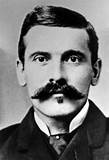 1887 –
1887 –
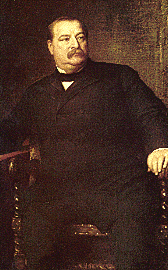 Former President
Former President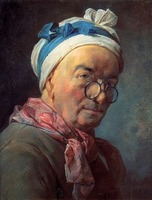 Birthday of Jean-Baptiste-Siméon Chardin, (November 2, 1699), was an 18th-century French painter. He is considered a master of still life, and is also noted for his genre paintings which depict kitchen maids, children, and domestic activities. Carefully balanced composition, soft diffusion of light, and granular impasto characterize his work. Influenced Manet and Cézanne. Examples of his work can be found at
Birthday of Jean-Baptiste-Siméon Chardin, (November 2, 1699), was an 18th-century French painter. He is considered a master of still life, and is also noted for his genre paintings which depict kitchen maids, children, and domestic activities. Carefully balanced composition, soft diffusion of light, and granular impasto characterize his work. Influenced Manet and Cézanne. Examples of his work can be found at 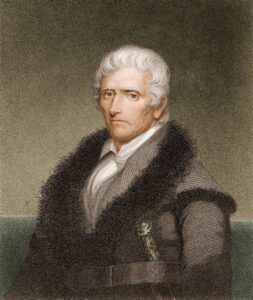 Birthday of Daniel Boone (November 2, 1734), American pioneer, explorer, frontiersman.
Birthday of Daniel Boone (November 2, 1734), American pioneer, explorer, frontiersman. 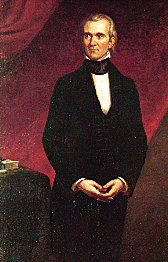 Birthday of
Birthday of  Birthday of
Birthday of 

 October 31, 1517 – Protestant Reformation: Martin Luther is believed to have nailed his 95 theses to Wittenberg Castle Church in Germany on this date.
October 31, 1517 – Protestant Reformation: Martin Luther is believed to have nailed his 95 theses to Wittenberg Castle Church in Germany on this date.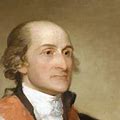
 Birthday of John Keats (October 31, 1795), English Romantic poet trained as a surgeon. John Keats was an English Romantic poet. He was one of the main figures of the second generation of Romantic poets, along with Lord Byron and Percy Bysshe Shelley, despite his works having been in publication for only four years before his death from tuberculosis at the age of 25.
Birthday of John Keats (October 31, 1795), English Romantic poet trained as a surgeon. John Keats was an English Romantic poet. He was one of the main figures of the second generation of Romantic poets, along with Lord Byron and Percy Bysshe Shelley, despite his works having been in publication for only four years before his death from tuberculosis at the age of 25.
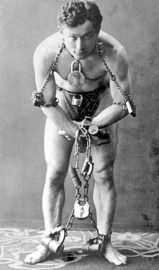 National Magic Day, honoring the skills of magicians and commemorating the death of the great Harry Houdini in 1926.
National Magic Day, honoring the skills of magicians and commemorating the death of the great Harry Houdini in 1926.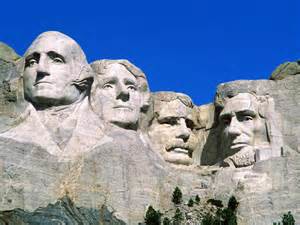 1941 After nearly 15 years of work, the Mount Rushmore National Memorial in the Black Hills of South Dakota was completed; the colossal sculpture features the heads of Presidents George Washington, Thomas Jefferson, Theodore Roosevelt, and Abraham Lincoln.
1941 After nearly 15 years of work, the Mount Rushmore National Memorial in the Black Hills of South Dakota was completed; the colossal sculpture features the heads of Presidents George Washington, Thomas Jefferson, Theodore Roosevelt, and Abraham Lincoln. Hawaii Statehood Day
Hawaii Statehood Day Missouri Admission Day
Missouri Admission Day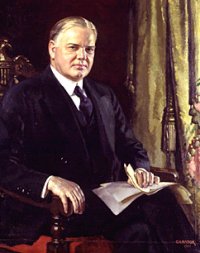 Birthday of
Birthday of  Colorado Day
Colorado Day Birthday of Camille Pissarro (July 10, 1830), Danish-French Impressionist. See
Birthday of Camille Pissarro (July 10, 1830), Danish-French Impressionist. See  Wyoming Statehood Day
Wyoming Statehood Day